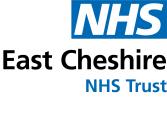Our lung cancer team at East Cheshire consists of chest physicians, specialist nurses and radiologists with close links to Christie NHS Foundation Trust and Manchester University NHS Foundation Trust.
For patients with suspected lung cancer we offer a rapid access service, with urgent CT scans, followed by same day clinic appointments where patients are assessed and supported by a lung specialist and a specialist lung cancer nurse. If required we will arrange the most appropriate test to investigate possible lung cancer.
Specialist diagnostic procedures performed on site including bronchoscopy, endobronchial ultrasound (EBUS), medical thoracoscopy and CT guided lung biopsy. Occasionally we may need to organise investigations in our partner hospitals. In addition, we may recommend several investigations to assess fitness for treatment including lung function test, assessment of heart function or exercise capacity.
For patients with pleural effusions we offer a dedicated clinic where diagnostic procedures such as ultrasound guided pleural aspiration can be performed during the consultation and further procedures such as medical thoracoscopy and indwelling pleural catheter (IPC) insertion can be organised urgently on-site.
We have a weekly specialist lung cancer meeting to discuss the care and treatment of our patients. This is attended by our local team and colleagues from Christie NHS Foundation Trust, Manchester University NHS Foundation Trust (MFT) and Mid Cheshire NHS Foundation Trust. Thoracic surgery is provided at the regional surgical centre at Wythenshawe Hospital (MFT) with radiotherapy and oncology treatments at the Christie Hospital. In addition, we have a dedicated visiting lung oncologist at Macclesfield Hospital with some chemotherapy treatments offered locally.
Our patients are cared for from the point of referral, throughout treatment and recovery by our dedicated team of lung cancer specialist nurses. Our nurses are also trained Macmillan palliative care nurses and provide advice and support with pain and symptom management for patients with palliative care needs through to end of life care both in the hospital and in the community. They support the person with cancer, their family, and the nurses and doctors who are looking after them.
Found a problem? Report it and help us to improve our website
